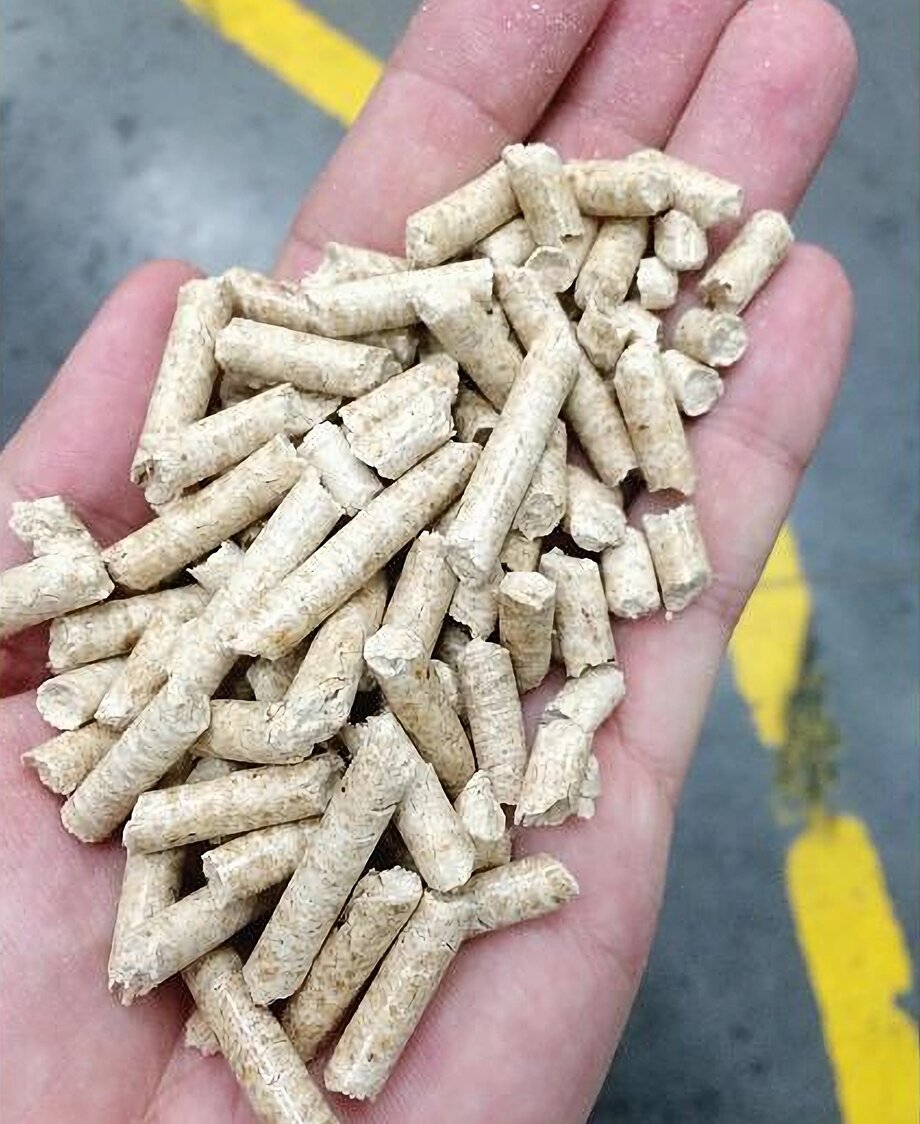
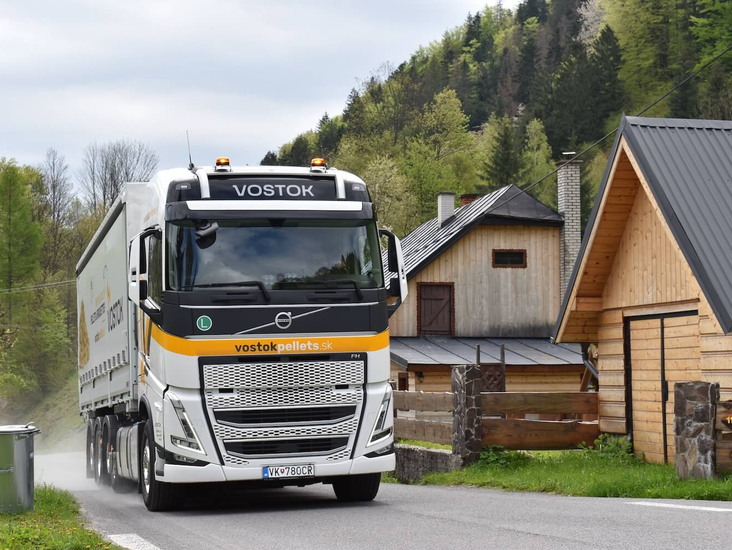
VOSTOK pellets achieve a calorific value of more than 17.5 MJ/kg, which ensures efficient and even heating with less fuel.
We will deliver the pellets right to you, or your carrier can pick them up from us. We are ready to meet all your requirements.
We obtain the sawdust for production as a by-product of the timber industry. So, we don't cut down any trees. Moreover, our production plant uses only 100% ecological energy. By heating with VOSTOK pellets, you reduce CO2 production and contribute to the protection of much-needed forests.
Certified according to the European pellet evaluation system ENplus. There is no better.
100% debarked Slovak spruce
Pellets pressed from clean sawdust and shavings, without chemical binders.
15 kg bag
70 bags per pallet = 1050 kg
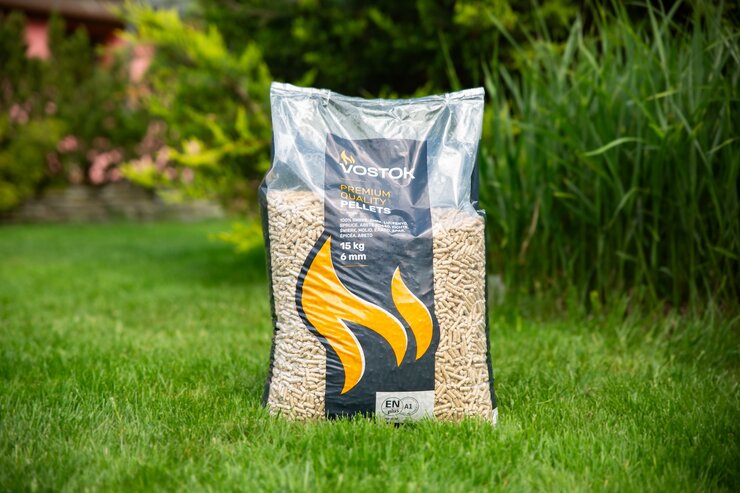
Standard requirement: 16.5 MJ/kg
Our heating value: 17.53 MJ/kg
With us, you get maximum heat
Standard requirement: max 10 %
Our moisture: 5.6 %
Why buy water?
Standard requirement: 0.7 % by weight. Our value: 0.32 % by weight.
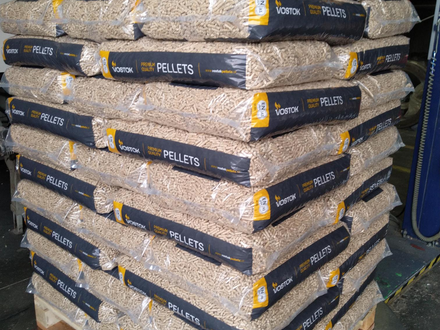
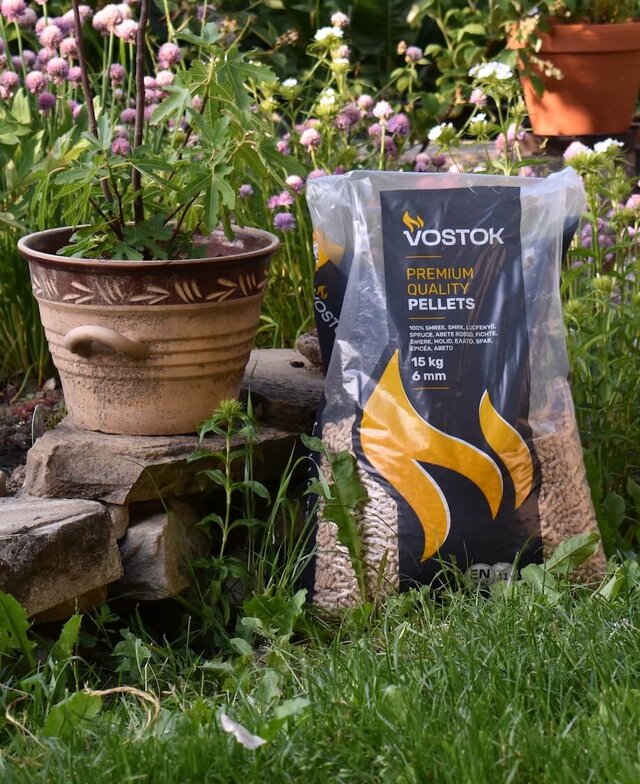
The easiest way to navigate is by the class of pellets. According to current standards, we distinguish three classes A1, A2, and B, and there are also manufacturers who do not classify their products according to any standard – primarily manufacturers from Russia, Ukraine, and similar. The highest quality of pellets is denoted by the ENplus A1 certificate. Manufacturers certified in this way are subject to strict supervision and regular production audits.